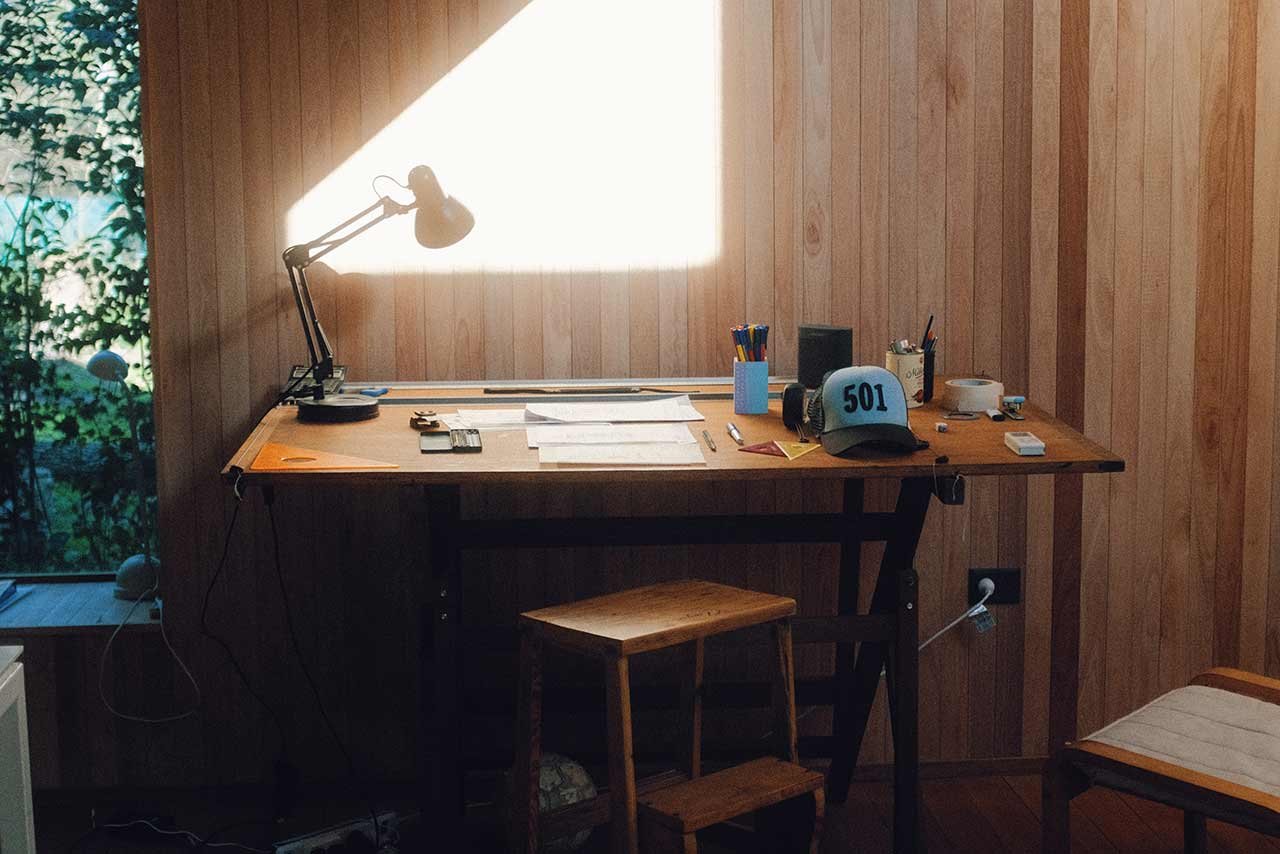Do you work as a freelancer from home? These are your deductible expenses.

el 24 de noviembre, 2025 • 5 min de lectura

🤓 This article has been made possible thanks to the collaboration of our team of expert self-employed managers.
We've reached every freelancer's favourite topic: tax-deductible expenses!
It seems like freelancers just have to pay, pay, and pay. But when it comes time to file their tax reports at the end of the quarter, that's when things get interesting because that's when they can save some money on their expenses (but be careful, they must always be related to their business☝️).
Do you know all the expenses you can deduct as a self-employed person if you work from home?
Knowing which expenses are deductible as a self-employed person is like going to the duty-free shop at the airport for the rest of us mortals. In this article, we will explain the requirements for the tax authorities to accept an expense as deductible and which ones you can start including at the end of the quarter.
1. What is a deductible expense for a self-employed?
In order to carry out their work, autonomos have to bear a series of expenses. Expenses that will make it difficult for them to make ends meet [read in voice-over style like a Sunday afternoon animal documentary].
But seriously, the textbook definition of deductible expenses for self-employed workers is:
Those expenses that are essential for the development of your professional or business activity and that the tax authorities allow you to include in your VAT reports (form 303) or income tax reports (form 130) so that you pay less tax.
In general terms, a deductible expense is essential for carrying out your activity and for which you can reduce your net income (income - expenses) at the end of each quarter. Examples include sportswear for a personal trainer or a website domain for a freelancer who is setting up an online shop.
😭 I have doubts about deducting an expense, what should I do? The requirements for an expense to be deductible are that it must be necessary and exclusive. If it does not meet these requirements, if you have doubts, you probably cannot deduct that expense. But if you are still concerned and do not want to mess things up, no worries, my friend! We are here to advise you, that is what we are here for. Contact us via chat, email or request a call and we will be happy to answer any questions you may have.
2. Deductible expenses for a self-employed working from home
Rental, mortgage or utility expenses are not fully deductible. The tax authorities allow you to deduct 30% of the percentage of the property used for business purposes and reported to the tax authorities.
For example, if you live in an 80-square-metre house and use 15 square metres for your business, you will have to allocate 18%.
-
Rental payments
As mentioned above, you will not be able to deduct 100%, so you will have to calculate the percentage of the property that you use to run your business.
Please note: you will need to ensure that the rental contract does not contain a clause that prevents you from including the rent as an expense or, if there is such a clause, you will need to talk to the landlord to draw up an annex.
You will also need to specify whether you are the only person named in the rental contract or if there are other tenants. -
If you own a property
If it is your home, you can deduct the interest applied to the mortgage payments, community fees and property tax. As in the previous case, you will have to calculate the percentage of the property that you use for your business activity.
As a tip, we recommend that this work area be easily identifiable and used exclusively for work, so that you will have no problems when presenting it to the tax authorities. -
Utility bills (water, electricity, gas or internet)
The same deduction rules apply: 30% of the total square metres used for the activity can be deducted. Although there may not be a noticeable difference at the end of the month, we will see significant annual savings. An example:
Marta works as a freelance psychologist from home, from a 100 m² flat. The consultation room where she sees her patients is 40 m², so she uses 40% of her home to carry out her work. From that 40%, we calculate the 30% deduction for utilities, leaving us with 12%, which is the percentage deduction that can be applied to the utilities she uses. -
Other supplies (mobile phone, office supplies, administrative services for freelancers, etc.)
If your home is your office, are your office supplies also household items? Which came first, self-employment or the deductible expense?
Although these expenses are the most sensitive when it comes to submitting them to the tax authorities, the important thing is that it is easy to justify that this expense is essential for carrying out your self-employed activity, even when you work from home.
A printer or a chair for work are office supplies that can be included as a deductible expense.
Please note: if the expense exceeds €300, a percentage of the purchase value must be deducted each year.
If you have hired an agency to handle your self-employed paperwork, such as Xolo, the monthly subscription fee is 100% deductible and the invoice will be automatically uploaded to our platform.
3. Requirements for the tax authorities to accept an expense as deductible if you are self-employed and work from home
To ensure that everything runs smoothly between you and the tax authorities, it is important that you are clear about the following requirements when deducting your expenses as a self-employed person working from home:
1. Keep your invoice: essential for deducting self-employed expenses
To avoid making mistakes when deducting expenses, we must keep the invoice and ensure that it is in our name. We want to emphasise that it is an invoice what is required, not a receipt, because otherwise it is not valid and you will not be able to deduct it (no freelancer wants that to happen). So don't forget to keep your invoices, as the tax authorities are very strict about this (in fact, they can ask you for explanations up to 5 years later 🤯).
What is the difference between an invoice and a receipt?
For an invoice to be considered as such, it must contain the following:
- Invoice number
- Issue date
- Full data from the provider: company name, CIF and adress
- Full data from the customer: full name, NIF (NIE or DNI) and adress
- Description of the goods or services purchased
- Price of the goods or services purchased free of tax (the 'actual' price before tax is applied. In other words, the price excluding VAT).
- VAT percentage applied (remember that invoices from outside the EU or within the EU when you are an intra-Community operator do not carry VAT)
- Total amount
With Xolo, you can upload all your expense receipts effortlessly: you can have them sent directly to our platform. You'll have everything in one place so you won't miss a thing. And if you don't know what you can deduct, we'll advise you so you pay less tax!
2. Expenses that are deductible when working as a freelancer from home must be directly related to our activity.
Can I include my Spotify Premium bill if I have a playlist to help me concentrate while working from home as a freelancer? Surprise, surprise: no.
The idea is that any expense you deduct must be essential to carrying out your work, even when you work from home.
Could you run your business without the internet? The vast majority of self-employed people would answer no, so it is easier for the tax authorities to understand that it is a deductible expense.
Our advice is not to force by including deductible expenses that may raise doubts when it comes to justifying them.
3. Deductible expenses must be recorded in the accounting books.
In the event of an inspection (siren sound), it will be much easier to pass if you have all your deductible expenses properly recorded in your expense and investment books, or in their digital version. If you have an agency that specialises in self-employed workers, they can help you to properly record all the deductible expenses involved in working from home, among other things.
4. How are expenses deducted if you work from rented or owned premises?
If you have rented or purchased premises or an office to carry out your self-employed activity, the deduction rules that apply if you work from home do not apply. If this is the case, you can deduct 100% of the expenses related to the premises.
This means that electricity, water, gas and internet bills will be 100% deductible.
If the space is rented, the expense will also be 100% deductible, but you must bear in mind that some landlords include a 19% withholding on the invoices.
What you will need to do with this withholding is report it and pay it quarterly to the tax authorities using model 115.
Now that you know which expenses you can deduct, you can try our system to upload all your invoices to our platform so that we can prepare your quarterly tax return without you even noticing. Because working from home as a freelancer can have more advantages than you thought. 💪


